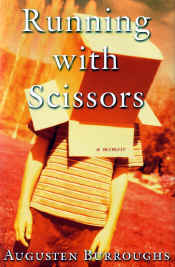 The premise of Stephen King’s Cell is pure horror, with a vindictive streak and a great storyline. What comes to be known as the Pulse is broadcast to all cell phones on October 1. Anyone who answers their cell phone, or who is speaking on their cell phone, undergoes a disturbing transformation. The “Phoners”, as they come to be known, attack anyone in their path, often with grisly results. The closest thing they resemble would be zombies. It’s up to the “Normies” to not only survive, but to find their way to a place which has no cell phone reception. No one is sure when it will be safe to answer their telephones. The “Phoners” also start to display flocking symptoms and their pseudo-leader, tagged “Raggedy Man” by the protagonist, is able to control the actions of the “Normies”. Clay Riddell, the protagonist, is desperate to make it home to Maine to find his son. Clay’s son had been begging for a cell phone, typical behavior for any youngster in today’s world. Clay does not know whether he will find his son has turned into a “Phoner”, or if he is even alive.
The premise of Stephen King’s Cell is pure horror, with a vindictive streak and a great storyline. What comes to be known as the Pulse is broadcast to all cell phones on October 1. Anyone who answers their cell phone, or who is speaking on their cell phone, undergoes a disturbing transformation. The “Phoners”, as they come to be known, attack anyone in their path, often with grisly results. The closest thing they resemble would be zombies. It’s up to the “Normies” to not only survive, but to find their way to a place which has no cell phone reception. No one is sure when it will be safe to answer their telephones. The “Phoners” also start to display flocking symptoms and their pseudo-leader, tagged “Raggedy Man” by the protagonist, is able to control the actions of the “Normies”. Clay Riddell, the protagonist, is desperate to make it home to Maine to find his son. Clay’s son had been begging for a cell phone, typical behavior for any youngster in today’s world. Clay does not know whether he will find his son has turned into a “Phoner”, or if he is even alive.Stephen King is the epitome of horror; the story ends with a lingering sense of doubt. Is everything going to be okay? Will the “Normies” prevail? Is there anything left to hope for? I admit I do not like reading stories where everything isn’t “solved” or rectified by the novel’s end. I admit that I have never been a horror fan – I scare easily – and the last Stephen King novel I read (It) had me peering in rain gutters for months afterwards. However, Stephen King is one of the best writers of this century and he proves with this novel that he has not slowed down. As for the vindictive streak, who hasn’t been upset with a rude cell phone user? Stephen King does not own a cell phone.


 White Savage
White Savage